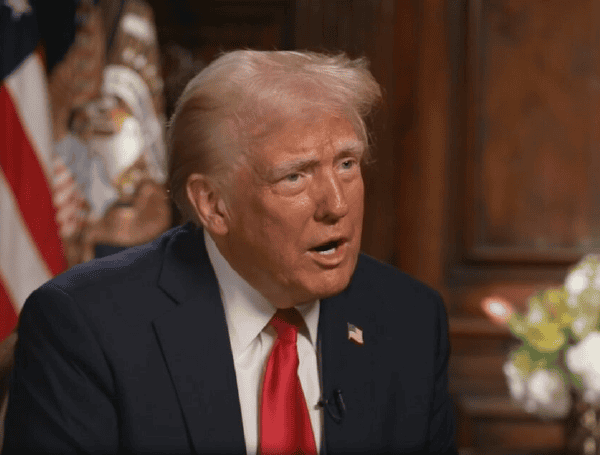President Donald Trump issued an executive order today directing the Department of Commerce to investigate whether imports of timber, lumber, and their derivative products—like paper, furniture, and cabinetry—pose a threat to U.S. national security. Invoking Section 232 of the Trade Expansion Act of 1962, the order targets what the administration calls vulnerabilities in the wood supply chain, driven by foreign subsidies and dumping, that undermine a critical industry tied to both civilian construction and military needs.
In the order, Trump framed the wood products sector as “essential to the national security, economic strength, and industrial resilience of the United States,” highlighting its role in downstream industries like construction, which supports over $10 billion in annual military spending. Despite the U.S. boasting ample timber resources—capable of meeting 95% of 2024 softwood demand domestically—the country has been a net lumber importer since 2016.
“It is the policy of the United States to ensure reliable, secure, and resilient domestic supply chains,” the order states, pointing to “unfair subsidies and foreign government support” as necessitating action.
The Commerce Department, led by Secretary Howard Lutnick, must launch a comprehensive probe within 270 days, assessing factors like domestic production capacity, foreign supply chain reliance, and the impact of predatory trade practices.
The investigation will also explore whether tariffs, quotas, or other measures are needed to bolster the industry, alongside incentives to ramp up U.S. output. “The United States has the resources,” Trump wrote, “but we’re letting foreign imports flood our market and weaken a backbone industry.”
The move aligns with Trump’s broader America First agenda, echoing his first-term tariffs on steel and aluminum under the same law. The military angle is key: the Pentagon’s investment in innovative wood products, like cross-laminated timber, hinges on a robust domestic base—a point the order underscores as vital amid global supply chain strains. Critics, however, may see it as protectionism dressed as security, potentially hiking costs for builders and consumers already squeezed by inflation.
READ :South Carolina Sen. Lindsey Graham Rips Zelenskyy After Oval Office Clash, Questions His Leadership
Commerce will consult with the Department of Defense and other agencies to gauge risks, with a report due by late November detailing findings and recommendations. The order defines “timber” as unprocessed wood and “lumber” as milled products, casting a wide net over an industry that spans forests to furniture factories.
Trade groups like the National Association of Home Builders have long griped about lumber shortages and price spikes—issues traced partly to Canadian imports, which dominate the U.S. market despite a 2021 duty hike. Whether the probe targets Canada, China, or others remains unclear, but its outcome could reshape trade flows and spark retaliation.
For now, Trump’s order kicks off a high-stakes review, blending economic nationalism with security rhetoric. If tariffs or quotas follow, the wood products sector—and the homes and bases it builds—could feel the ripple effects for years. The White House framed it as a stand for resilience; detractors may call it a gambit in a broader trade war. Either way, the countdown to Commerce’s verdict has begun.
Please make a small donation to the Tampa Free Press to help sustain independent journalism. Your contribution enables us to continue delivering high-quality, local, and national news coverage.
Connect with us: Follow the Tampa Free Press on Facebook and Twitter for breaking news and updates.
Sign up: Subscribe to our free newsletter for a curated selection of top stories delivered straight to your inbox.

